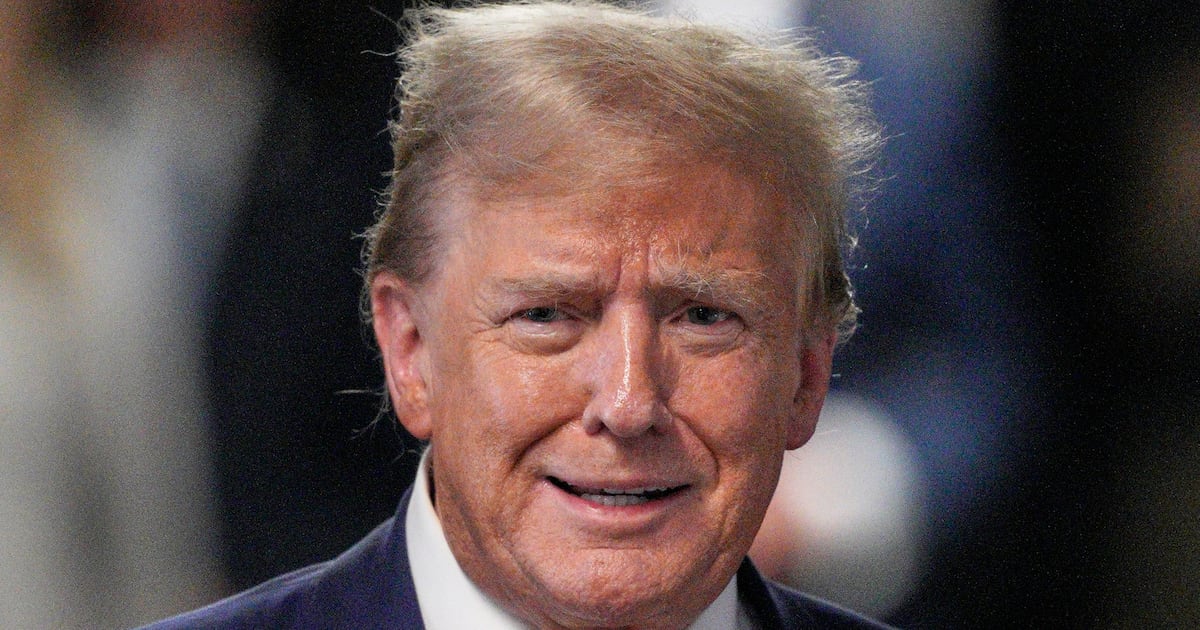The United States will allow torture again over Sen. John McCain’s dead body.
The Arizona Republican has worked tirelessly for more than a decade to prevent the United States from using torture during interrogations, influenced by the hell he experienced as a prisoner of war in Vietnam.
If President Donald Trump, who campaigned on a platform of using waterboarding and “a hell of a lot worse” to question, the draft-dodger will have to declare war on McCain, a war hero.
“We passed a law [prohibiting torture], and it as clear in the congressional record what the intent of the law was,” McCain said pointedly, in a conversation with The Daily Beast. “They would have to reverse the intent of the law, which they will not do.”
McCain began his anti-torture push with a law he authored in 2005, but the law he passed only covered military interrogations. A more recent anti-torture law, written by McCain and Sen. Dianne Feinstein (D-CA) in 2015, barred all American officials from waterboarding or any other interrogation technique not explicitly mentioned in the U.S. Army Field Manual.
The Bush administration circumvented previous prohibitions on torture by listing a series of “enhanced interrogation techniques” that it believed stopped short of torture.
McCain and Feinstein’s measure prevents this by stating clearly that only the methods explicitly outlined in the Army Field Manual can be used in questioning. The manual also requires that detainees be treated “humanely” and prohibits the use of “cruel, inhuman or degrading treatment.”
McCain confidently predicted that his law could not be circumvented:
“We could have another vote. It will be 92-7 again,” he said. McCain may have been speaking figuratively, but he was close enough—in 2015, the McCain-Feinstein amendment passed the Senate with more than three-quarters of the Senate supporting it: 78 to 21.
The threat of bringing torture back appears to be real.
A draft of a new executive order within the administration indicates that the president would examine whether the United States should use “enhanced interrogation techniques” and whether it should reopen overseas ‘black sites’ for interrogation, The New York Times reported.
And within the last week, incoming CIA Director Mike Pompeo appeared to leave open the door to waterboarding as an interrogation technique. National Security Advisor Mike Flynn has said that he “would probably OK enhanced interrogation techniques within certain limits” if the country was in “grave danger from a terrorist attack involving weapons of mass destruction.” And Jeff Sessions, now Trump’s nominee for attorney general, voted against McCain and Feinstein’s efforts to ban torture (although he said in his confirmation hearing that he would enforce that law).
“Donald Trump has endorsed bringing back torture, clearly violations of the Geneva Conventions,” said Susan Hennessey, a former National Security Agency lawyer. “His position is a rather extreme and remarkable one.”
So as Trump takes office, some wonder whether he might be able to carry it out in a time of national crisis—despite a legal framework that clearly prohibits torture. After all, torture was already illegal after the 9/11 attacks, when the Bush administration used “enhanced interrogation techniques,” which included beating, stress positions, sleep deprivation, and waterboarding.
“I’m a skeptic that any law is inviolable,” said Glenn Carle, a 27-year veteran of the CIA with direct experience interrogating a top al Qaeda operative in the years after 9/11. “Our democracy is shockingly thin. Yes, the law can be circumvented if the executive wants to. Only with consistent vigilance and pressure is our law given substance and life.”
Feinstein told The Daily Beast that there was only one weakness in the law: the possibility that the Trump administration could change the Army Field Manual.
“The Army Field Manual can be reviewed every three years. That might be the only weak part of it,” Feinstein said, but she had no concern “right now” that this could occur. And even in that case, McCain and Feinstein’s law prohibits any changes in the field manual that would involve the use or threat of force.
National security and legal experts, on the other hand, believe that the law is clear—and almost airtight.
“Many people have had the instinct that torture was convenient, or effective, or acceptable. And we, the American people, Congress, and the world at large as airtight a prohibition as is legally possible,” said David Cole, the national legal director of the American Civil Liberties Union. “[The Trump administration] would have to change the field manual, overcome extraordinary resistance in the military, make it public, thereby bringing on them the uniform criticism of the world.”
American abuses have also been laid bare, making it less likely to occur again: In December 2014, the Senate “torture report” outlined some of the abuses that occurred following the 9/11 attacks, including forced rectal feeding, nonstop interrogation, a detainee forced to stand on broken legs, waterboarding, and a “black site” for detainees in Afghanistan called the Salt Pit.
Carle, whose views are colored by more than two decades of work in the CIA, and his own experiences in interrogating terrorists, has a different view of the law—and how governments tend to find legal loopholes in times of crisis, citing the Bush administration’s use of torture and the Iran-Contra scandal as examples.
“The law and our checks and balances are much more frail than most people imagine,” he said.






